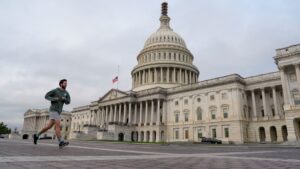In a recent development, the U.S. Congress has been delving into American capital allegedly funding China’s military growth, hinting that stricter scrutiny on U.S. investments in China may become a lasting fixture in legislation. Despite a few setbacks in 2023, some members of the House of Representatives are persevering in their efforts.
“I do think Congress needs to step up and legislate an enduring solution to this problem because otherwise, we’re going to ping pong back and forth between different administrations and different executive orders,” stated Mike Gallagher, chairman of the House Select Committee on the Strategic Competition Between the United States and the Chinese Communist Party. Gallagher emphasized the need to cut off funds in advanced technology sectors to avoid unwittingly funding detrimental purposes.
The House Select Committee on the CCP, which instigated the legislative act aiming to essentially ban TikTok in the U.S., has been actively pursuing its agenda. The committee’s report released in February revealed that U.S. venture capital firms had invested significantly in Chinese companies contributing to the CCP’s military developments and other concerning activities.
While challenges persist in passing substantial restrictions on investments in China, bipartisan agreement on a harder stance against Beijing has been evident. The Biden administration issued an executive order in August to constrain U.S. investments in sectors like semiconductors, quantum computing, and artificial intelligence due to national security concerns.
Looking ahead, experts anticipate greater transparency and potential regulations on U.S. investments in China, especially related to critical technologies like quantum computing and AI. Despite the uncertainties surrounding regulations and economic cycles, opportunities in the Chinese market remain alluring for global investors.
As the debate continues in Congress and the executive branch, the future of U.S.-China relations and investment policies remains complex and ever-evolving. Stay tuned for further updates on this critical issue.
Source link


